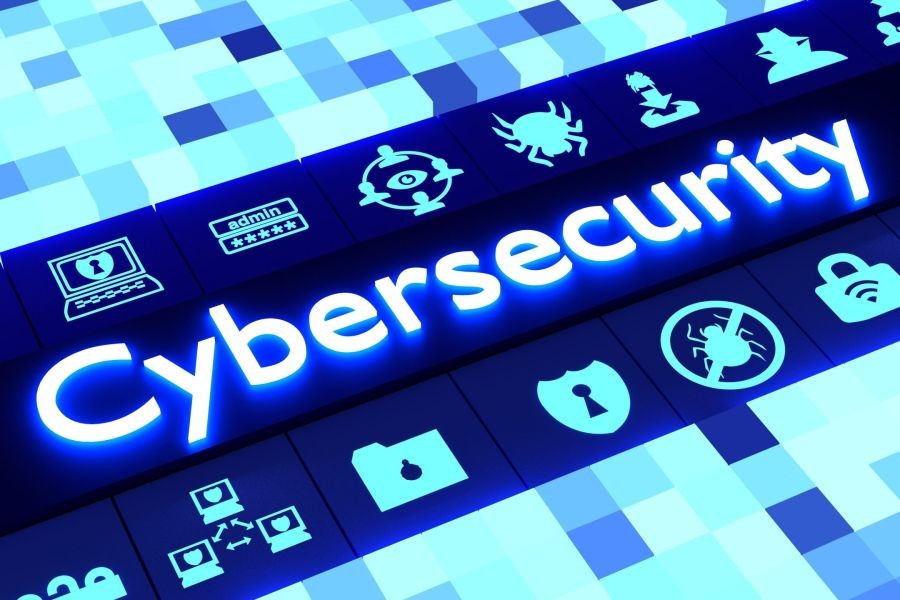In an era dominated by digital transformation, cybersecurity has emerged as an indispensable pillar for businesses across the globe. For New Zealand enterprises, the importance of robust cybersecurity measures cannot be overstated. With the increasing frequency of cyber threats and the unique economic landscape of New Zealand, businesses must prioritize cybersecurity as a core aspect of their strategy to thrive in today's interconnected world.
Understanding the Stakes: New Zealand's Digital Evolution
New Zealand's economy is rapidly evolving with digital adoption across various sectors. According to a report by the Ministry of Business, Innovation and Employment (MBIE), the digital economy contributes over $6 billion annually, and this figure is expected to grow exponentially in the coming years. As businesses increasingly rely on digital platforms for operations and customer engagement, the threat landscape expands, highlighting the urgent need for stringent cybersecurity measures.
Case Study: The Cybersecurity Breach of Waikato District Health Board
Problem: The Waikato District Health Board (WDHB), a crucial healthcare provider, faced a devastating ransomware attack in 2021 that paralyzed its systems and disrupted services. This incident not only compromised sensitive patient data but also highlighted vulnerabilities within the healthcare sector's digital infrastructure.
Action: In response, WDHB collaborated with cybersecurity experts to overhaul its digital security framework. This included implementing advanced threat detection systems and conducting regular security audits.
Result: Post-implementation, WDHB reported a significant reduction in security breaches and enhanced resilience against cyber threats.
Takeaway: This case underscores the necessity for New Zealand's healthcare providers to invest in comprehensive cybersecurity solutions to safeguard sensitive data and ensure uninterrupted operations.
Global Insights and Their Relevance to New Zealand
Globally, businesses have recognized the critical role of cybersecurity in maintaining operational integrity. A study by Cybersecurity Ventures predicts that cybercrime costs will reach $10.5 trillion annually by 2025, up from $3 trillion in 2015. This statistic is a stark reminder of the financial implications of inadequate cybersecurity measures.
For New Zealand, the lessons from international corporations are invaluable. Leveraging global best practices can fortify local businesses against emerging threats. For example, adopting zero-trust architecture—a model that verifies every access request regardless of origin—can significantly enhance security in New Zealand's corporate landscape.
Expert Opinion: The Voice of New Zealand's Cybersecurity Experts
Dr. Sarah Thompson, a leading cybersecurity researcher at the University of Auckland, emphasizes the importance of proactive cybersecurity strategies. "In today's digital era, waiting for an attack to occur before taking action is no longer viable. New Zealand businesses must adopt a proactive stance, integrating cybersecurity into every aspect of their operations," she advises.
Her insights are echoed by industry leaders who advocate for continuous employee training and awareness programs to mitigate risks associated with human error, a leading cause of data breaches.
Common Myths & Mistakes in Cybersecurity
Myth vs. Reality
- Myth: Small businesses are not targets for cyber attacks.
- Reality: According to Cert NZ, small businesses are increasingly targeted, with 40% of attacks aimed at them in 2023. These businesses often lack robust defenses, making them attractive to cybercriminals.
- Myth: Antivirus software alone is sufficient protection.
- Reality: While antivirus software is a crucial component, comprehensive cybersecurity requires multiple layers of defense, including firewalls, encryption, and employee training.
- Myth: Cybersecurity is only an IT issue.
- Reality: Cybersecurity is a business-wide concern that requires involvement from all departments to ensure comprehensive protection and response strategies.
Biggest Mistakes to Avoid
- Neglecting Regular Security Audits: Regular audits are essential to identify vulnerabilities and ensure compliance with evolving regulations.
- Ignoring Employee Training: Human error is a leading cause of breaches. Continuous training can drastically reduce the risk.
- Underestimating Insider Threats: Implementing strict access controls and monitoring systems can mitigate risks from within the organization.
The Pros and Cons of Investing in Cybersecurity
Pros:
- Enhanced Reputation: Businesses with strong cybersecurity measures are viewed as trustworthy, attracting more customers.
- Long-term Cost Savings: Investing in cybersecurity can prevent costly data breaches and associated legal fees.
- Regulatory Compliance: Adhering to cybersecurity regulations protects businesses from fines and sanctions.
Cons:
- Initial Costs: Implementing comprehensive cybersecurity measures can be expensive, especially for small businesses.
- Resource Intensive: Continuous monitoring and updates require dedicated resources and expertise.
Looking Ahead: Future Trends in Cybersecurity
As cyber threats continue to evolve, so too must the strategies to combat them. According to a report by Deloitte, artificial intelligence (AI) and machine learning (ML) will play a pivotal role in future cybersecurity frameworks, enabling faster threat detection and response. By 2030, AI-driven cybersecurity solutions are expected to be a standard feature in New Zealand businesses, enhancing their ability to preemptively thwart cyber attacks.
Moreover, with the rise of remote work, securing cloud-based applications and networks will become increasingly important. Businesses must prioritize secure cloud solutions to protect sensitive data in this new working paradigm.
Conclusion
In conclusion, the significance of cybersecurity for New Zealand businesses cannot be overstated. As digital integration deepens, so does the threat landscape, necessitating proactive and comprehensive cybersecurity strategies. By learning from global examples and investing in cutting-edge solutions, New Zealand businesses can not only protect themselves but also position themselves as leaders in digital trust and security.
What steps will your business take to enhance its cybersecurity posture? Share your strategies and insights below!
Related Search Queries
- Cybersecurity trends in New Zealand
- Best practices for cybersecurity in small businesses
- Importance of cybersecurity for businesses
- Future of cybersecurity technology
- Cybersecurity case studies
People Also Ask
- How does cybersecurity impact businesses in New Zealand? Cybersecurity helps prevent data breaches, ensuring business continuity and customer trust, essential for long-term success.
- What are the best strategies for implementing cybersecurity? Experts recommend starting with risk assessments, followed by implementing multi-layered security protocols and regular employee training.
- Who benefits the most from cybersecurity? All businesses, regardless of size, benefit from cybersecurity, protecting themselves and their customers from potential threats.


























Doobie District
9 months ago